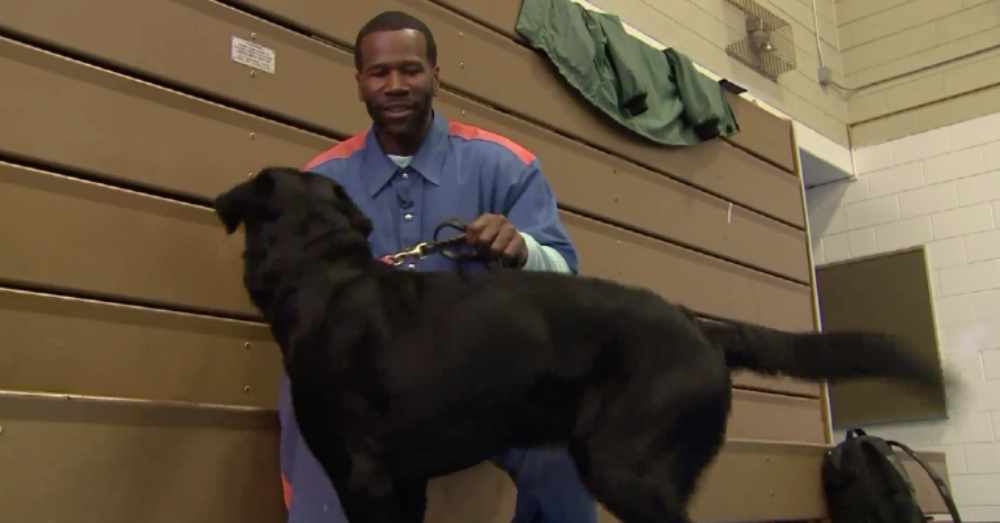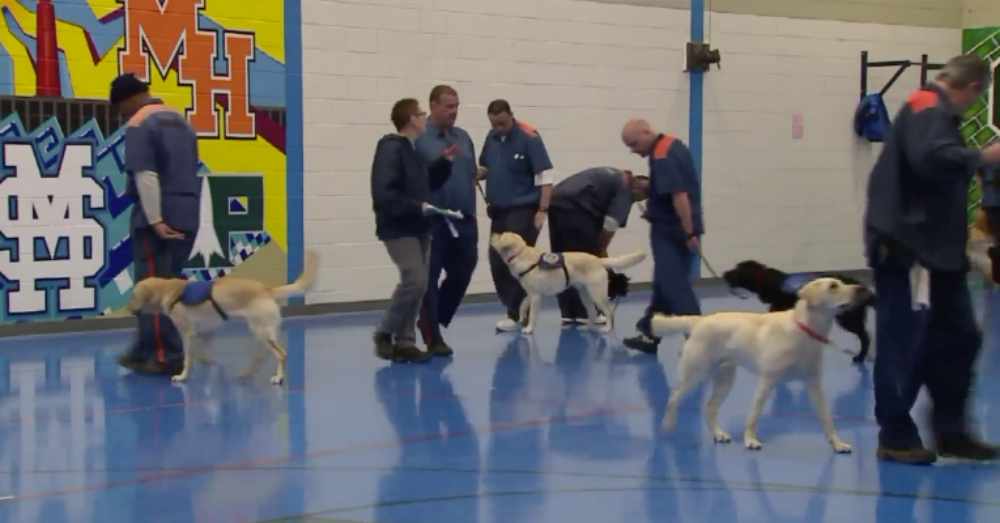
Michigan Inmates Help Train Assistance Dogs for People with Autism, Blindness, Deafness, and More
In Muskegon, Michigan, a program is allowing inmates to give back to their communities and find joy in the work at the same time. Their efforts with service dogs in training benefit people who suffer from blindness, deafness, limited mobility, autism, and other conditions.
Paws for a Cause is always looking for more people to be volunteer puppy raisers for their future assistance dogs, who need to get basic training and exposure to a wide variety of people and lifestyles in their first several months of life. Volunteers are always in short supply, which led the organization to try something different—getting prison inmates to help raise dogs.

Inmates can’t completely replace regular volunteer puppy raisers, because prison life does not offer proper opportunities for the puppy to be exposed to social situations and busy public places. However, after the puppy has spent a year with a puppy raiser and been properly socialized, inmates can step in and help the pup complete the first phases of its training.

Special rules are in place to keep the dogs from getting hurt, of course, and no dogs have been harmed in the history of the program. Inmates cannot be accepted into the program if they have a history of abuse or criminal sexual conduct or have had any infraction in the last 12 months. In addition, any infraction that occurs while an inmate is training a dog will get him banned from the program for good.
Dogs stay in the cell with their human partner, but dogs and people in the program are separated from the rest of the prison population and live near a grassy area where the dogs can be taken outside for bathroom breaks. Inmates are responsible for training on their own time, but they attend training sessions together twice a week to make sure they’re keeping up on the curriculum.

So far, the program is going swimmingly. The inmates have far more time to devote to their dogs than an ordinary puppy raiser would, which means they do five times the training and get the dogs through their first phase of training that much faster. The additional time inmates have to spend with their dogs also gives them a better shot at fixing any behavioral problems that may keep a dog from graduating from the program.
The routine and discipline of prison life also seem to make it the perfect place for dogs to get good consistent training. Dogs who have been trained by prison inmates have better on-leash behavior than dogs raised elsewhere. Their formal Assistance Dog Training after they leave the prison usually doesn’t take as long as it does for other dogs, which saves Paws with a Cause time and money and allows more dogs to get through the program faster so that they can be matched with a person who will benefit greatly from their assistance.

The program has benefits for inmates and the community as well. Inmates tend to be better behaved when they know it could get them into the puppy raising program. Inmates who are chosen to care for a dog have a new sense of purpose; they take the responsibility seriously and care for their dogs generously and faithfully.
Inmates in the program learn new employable skills like communication and self-discipline, and they are more employable and more likely to stay out of prison after their sentence is up. They also develop better relationships both within and outside of prison, and many of them are able to get off of medications prescribed by a psychiatrist.
Check out the video below to learn more about how the prison partnership from the inmates themselves.

+ There are no comments
Add yours